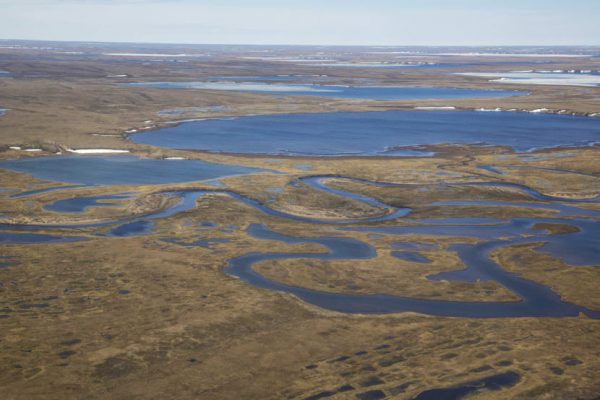
The Bureau of Land Management announced Monday that it is ditching a Trump administration plan for the National Petroleum Reserve-Alaska and instead will revert to managing the area according to a 2013 plan crafted by the Obama administration.
The move closes millions of acres in the NPR-A to potential oil drilling. The 2013 plan is especially protective of Teshekpuk Lake, a large wetlands important to shorebirds, loons and caribou.
But the BLM says the decision still leaves nearly 12 million acres available for oil and gas leasing. That’s slightly more than 50% of the NPR-A. The Trump administration had wanted closer to 80% open to drilling. There was never a lease sale under Trump’s plan.
The Biden administration indicated in January it was considering reversing the Trump-era policy, drawing outrage from Alaska’s congressional delegation.
“Sweeping restrictions like this — which are being imposed even as the Biden administration implores OPEC+ to produce more oil — demonstrate everything that is wrong with its energy policies,” Sen. Lisa Murkowski said in a news release in January.
The NPR-A is roughly the size of Indiana and is the country’s largest unit of public land. Environmental groups prefer to call it the Western Arctic.
Several environmental groups quickly issued statements praising the decision. But the Arizona-based Center for Biological Diversity said the decision doesn’t go far enough because it still allows new Arctic drilling.
“Addressing the climate emergency means ending new fossil fuel extraction, and we can’t keep going in the opposite direction,” Kristen Monsell, a senior attorney at the Center for Biological Diversity, said in an emailed statement.
While the Trump administration’s plan called for allowing oil development in most of the NPR-A, it also had leasing restrictions aimed at, among other things, reducing the impact on the land surface and limiting activity during certain seasons.
The “record of decision” announced Monday employs some of those lease restrictions.
[Sign up for Alaska Public Media’s daily newsletter to get our top stories delivered to your inbox.]
Liz Ruskin is the Washington, D.C., correspondent at Alaska Public Media. Reach her at lruskin@alaskapublic.org. Read more about Liz here.





